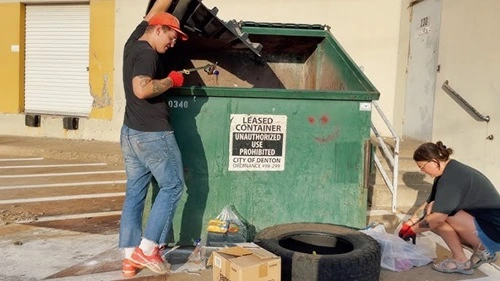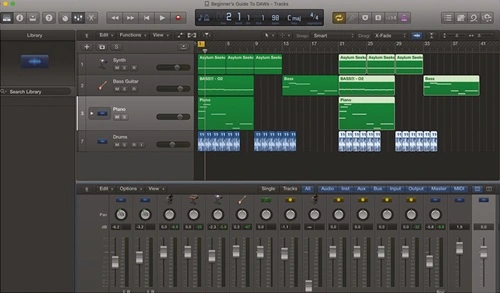Yes, in many states, it is illegal to tow a car with a chain, particularly on public roads. While laws vary by state, most jurisdictions require the use of proper towing equipment, such as tow bars, tow dollies, or tow trucks, to ensure safety. Towing with a chain often violates traffic safety regulations and can lead to fines or liability in case of an accident.
Legal Framework Governing Towing Practices
Federal Laws
There are no federal laws explicitly regulating towing with a chain. However, the Federal Motor Carrier Safety Administration (FMCSA) has standards for commercial towing operations to ensure public safety. These regulations indirectly discourage unsafe practices like using chains for towing on public roads.
State Laws
State and local governments regulate towing practices, and most prohibit towing with chains under specific circumstances. Common requirements include:
1. Use of Approved Equipment:
- Many states mandate the use of towing methods that include tow bars, flatbed trucks, or tow dollies to safely secure the towed vehicle.
- Chains may only be used as supplemental safety measures, not as the primary towing mechanism.
2. Distance and Visibility Regulations:
- Some states, such as California, require a specific distance between the towing vehicle and the towed vehicle, which chains often fail to maintain securely.
- Towed vehicles must also display proper lighting, such as taillights and brake lights, which may not be feasible with a chain setup.
3. Prohibition on Public Roads:
- Texas Transportation Code Section 545.409 prohibits the use of unsafe towing methods, including chains, on public highways unless they meet safety standards.
- Florida Statutes Chapter 316.530 specifies that towing vehicles must be properly equipped to prevent accidents, implicitly disallowing chains for towing.
Why Is Towing With a Chain Problematic?
1. Safety Concerns:
- Chains can snap, loosen, or become unhooked, increasing the risk of accidents.
- Towing with a chain makes it difficult to control the towed vehicle, especially at high speeds or during sudden stops.
2. Risk to Other Drivers:
- An improperly secured vehicle can sway, detach, or roll into traffic, endangering other road users.
3. Damage to Vehicles:
- Chains can damage the frame or bumper of the towed vehicle, leading to costly repairs.
4. Legal Liability:
- If a chain breaks or causes an accident, the person towing the vehicle can be held liable for damages, fines, and legal consequences.
Penalties for Towing With a Chain
Penalties for towing with a chain vary depending on the state and circumstances:
1. Fines:
- Violations typically result in fines ranging from $50 to $500.
- Heavier fines may apply if the towing results in an accident or damages.
2. Traffic Violations:
- Drivers may receive citations for reckless driving, unsafe towing practices, or equipment violations.
3. Civil Liability:
- If towing with a chain causes property damage or injury, the driver may be sued for damages in civil court.
4. Vehicle Impoundment:
- Law enforcement may impound improperly towed vehicles that pose a hazard to public safety.
Safe and Legal Towing Alternatives
To ensure compliance with state laws and maintain safety, use these towing methods instead of chains:
1. Tow Bars:
Rigid connections that keep the towed vehicle securely aligned with the towing vehicle.
2. Tow Dollies:
Two-wheeled trailers that lift the front or rear wheels of the towed vehicle off the ground.
3. Flatbed Trailers:
A flatbed tow truck or trailer fully supports the towed vehicle, minimizing risk.
4. Proper Lighting:
Ensure the towed vehicle has functioning taillights, brake lights, and turn signals.
Recent Cases and Updates
1. California, 2023:
A driver was fined $300 for towing a disabled vehicle with a chain on a busy freeway. Law enforcement cited unsafe towing practices and impounded the vehicle.
2. Texas, 2024:
Authorities launched a campaign to educate drivers on safe towing methods after a chain-based tow caused a multi-car accident.
3. Florida, 2024:
Lawmakers introduced stricter towing regulations requiring additional safety measures for non-commercial tows, including banning chain-only setups on public roads.
Common FAQs
Q1. Can I tow a car with a chain on private property?
Ans: Yes, in most states, towing with a chain on private property is allowed as long as it doesn’t pose a safety hazard. However, this is not recommended due to the risks involved.
Q2. What happens if I’m caught towing with a chain?
Ans: You may receive a citation for unsafe towing, face fines, or have the towed vehicle impounded, especially if you’re on a public road.
Q3. Are chains ever legal for towing?
Ans: Chains can be used as supplemental safety devices, such as securing a load or preventing a trailer from detaching. However, they are not legal as the primary towing method on public roads in most states.
Q4. What are the risks of towing with a chain?
Ans: Risks include the chain snapping, difficulty controlling the towed vehicle, and causing damage to both vehicles or accidents on the road.
Q5. What towing method should I use instead of a chain?
Ans: Use tow bars, dollies, or flatbed trailers, all of which are safer and compliant with state laws.
Conclusion
Towing a car with a chain is generally unsafe and illegal on public roads in many states. To avoid legal trouble and ensure safety, use approved towing equipment and follow state-specific regulations. By adopting proper towing practices, drivers can protect themselves, their vehicles, and others on the road.


